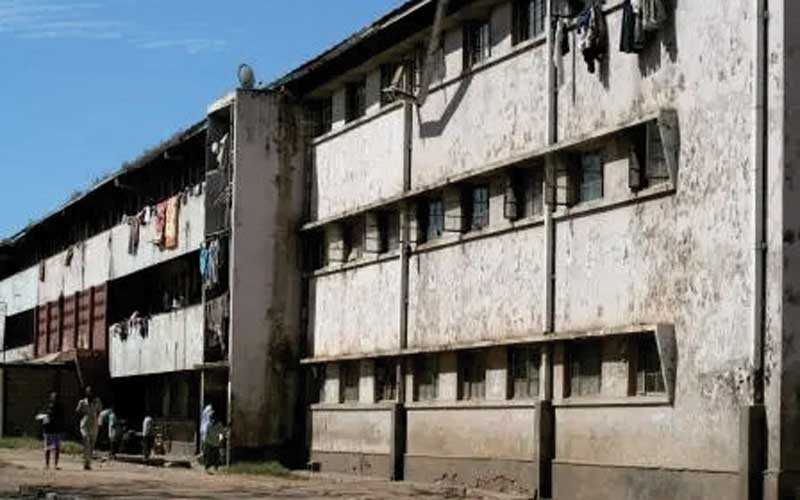
THE Office of the Auditor-General (AG) periodically publishes audit reports that serve as an evaluation tool for internal control mechanisms within the public sector.
In turn, this stimulates good governance through enhancing efficiency, transparency, and accountability in the use of public funds.
As such, this column seeks to identify key implications that can be drawn from the audit findings on local authorities for the financial year ended December 2022.
Implications of audit findings
The AG’s office performance audit reports assure service delivery as they respond directly to the bill of rights and social rights of citizens, such as access to affordable and quality health care, housing, clean and safe water, education, transportation, and social security.
As such, this analysis indicates major implications from the latest AG’s office findings on the realisation of the socio-economic rights of residents, in particular, and citizens in general.
Infrastructure development
Local authorities are mandated to maintain key infrastructure like local road networks. Generally, a good road network helps in reducing fatal accidents and lowering the cost of doing business.
- Vungu RDC, River Valley property partner on road and drainage system
- Gweru businesswoman scoops top award
- Vungu RDC, River Valley property partner on road and drainage system
- Gweru businesswoman scoops top award
Keep Reading
This leads to increased investment, commerce, job creation, ease of access to markets, and powering inclusive economic growth. Since 2019, the government has set aside 5% of the national budget for resourcing the devolution fund.
The local authorities are then allowed to invest their devolution funds allocations in capital projects like the maintenance of local roads.
However, the AG’s office discovered that some local authorities are not using their devolution funds as intended. For instance, Bindura Municipality failed to prepare acquittal reports to show how it utilised its devolution funds.
Gokwe Town Council used devolution funds worth ZW$7,3 million in 2020 but failed to document evidence of project implementation. All this shows that local authorities are too prone to financial loss caused by misappropriation of funds.
Also, the AG’s office report has shown that infrastructure development in local authorities is being inhibited by a lack of compliance with the dictates of the Public Procurement and Disposal of Public Assets Act, together with other procurement laws and regulations.
It was established that many local authorities are undertaking unsupported expenditures (no valid quotations, invoices, receipts, payment vouchers, etc.), purchasing assets without going to tender, fully paying for goods and services that never get delivered, and sometimes overpaying suppliers.
All these tendencies prop up corruption and bribery and increase suboptimal use of public resources.
Environment protection
Climate change has become an existential threat to human life. Averting the danger and protecting all citizens requires a whole of government approach.
This approach includes full protection of the environment to reduce pollution, limit global warming, prevent natural disasters, preserve species diversity, increase biodiversity, and ensure sustainable use of resources.
However, the 2022 AG’s office report established that actions by many local authorities are harming the environment. Such actions include poor maintenance of drains and culverts, allocation of stands in wetlands, sewer bursts and spillages, and poor solid waste management among others.
The degradation of the environment creates life-threatening hazards, inhibits rapid response to emergencies, and extinction of species and biodiversity disproportionately affects young and future generations.
Education
The latest AG’s office report on local authorities has laid bare the challenges being faced in the public education sector, a sector that sustains the majority of the population. Investments into the education sector by local authorities to increase education infrastructure like classroom blocks are inadequate leading to hot sittings.
For instance, 2022 enrolment statistics for a school in Redcliff Municipality show that there were 47 classes against the available 17 classrooms; hence, the school required an additional 30 classrooms to alleviate the shortage.
Many public schools, particularly in urban areas, are operating on hot seating arrangements to accommodate learners.
Public education is relatively affordable when compared to the private sector, a sector that has largely dollarised at a time when many households continue to largely earn in volatile local currency.
However, classroom shortages in public schools are causing many learners to attend lessons outside classrooms, exposed to extreme weather conditions.
Also, the available classrooms are overcrowded, thus limiting available resources for learning, disadvantaging children with additional needs, reducing teachers’ ability to give individual feedback, and increasing distraction which affects focus and concentration.
So, the lack of investment in public education by local authorities is entrenching inequalities and trapping many people in vicious cycles of poverty.
Healthcare
The local authorities are expected to provide residents with affordable state-of-the-art healthcare infrastructure and services. These are crucial as they allow citizens to be able to realise their potential and play an important role in social and national development.
From an economic perspective, a healthy population helps in building a productive workforce and makes the country strong in many economic spheres.
However, the AG’s office report has shown that many local authorities are failing to provide adequate healthcare services to residents. For instance, clinics in Kadoma City Council are operating with a shortage of registered general nurses and sisters-in-charge and have no functional ambulances.
Zvishavane Town Council does not have any clinic or hospital. It relies on one district hospital and government clinic, which are inadequate to cater to the district’s population.
Dilapidating infrastructure, poor remuneration, and shortage of medical drugs, medical equipment, and healthcare personnel in council-owned healthcare institutions are increasing costs for residents in the form of higher out-of-pocket costs, higher insurance premiums, and increased prices of drugs.
It is also leading to increased avoidable deaths due to limited rapid response mechanisms and postponement/ jeopardisation of medical procedures coupled with low health worker morale.
This is disproportionately affecting vulnerable groups like people with disabilities (PWDs), and pregnant women. In light of all this, one can conclude that by not improving healthcare services, local authroties are playing a huge role in leaving vulnerable groups behind.
Housing
Local authorities are mandated to provide housing to residents. As such, they are expected to develop and maintain up-to-date plans that meet the housing requirements of their communities, decide development applications promptly, and ensure the homes they have planned for are built on time.
This is key to reducing poverty, ensuring that households afford housing, and reducing illegal settlements and homelessness. Nevertheless, the AG’s office report showed that many local authorities are failing to take their housing responsibility seriously.
The audit report established that some local authorities like Chegutu Municipality lack proper controls of stand registers to avoid manipulation, some like Gweru City Council are not maintaining stand registers at all while some like Harare City Council are selling unserviced stands.
The lack of effective housing policies coupled with the sale of unserviced stands is leading to housing shortages and illegal settlements, which fuel the spread of diseases and crime rate.
Unfortunately, the gross mismanagement of residential stands by local authorities occurs at a time when Zimbabwe is grappling with acute housing shortages.
It is estimated that the nation faces a housing backlog of about 1,5 million units. To highlight the gravity of the housing crisis is Matapi Flats in Mbare which were designed to house bachelors but are now being used by hundreds of families. In 2022, official statistics established that at 42,7%, urban areas have the highest proportion of lodger occupancy.
This shows that almost half of urban dwellers are exposed to rising and dollarised rentals thus further constraining their budgets amid persisting depreciation of the local currency and food inflation.
Social welfare
Social welfare refers to government support intended to ensure that disadvantaged members of society such as the poor, PWDs, elderly, and unemployed can meet basic human needs.
A granular analysis of the 2022 AG’s office shows that local governments are failing to provide adequate social safety nets to deserving residents due to poor revenue collection and debt recovery.
Many local authorities are not performing reconciliation of debtors and payables. They are not keeping security items like registers or issuing vouchers for traffic ticket books, not maintaining records of lease agreements, not maintaining a database of business operators, and not checking the completeness of revenues earned from beer levies.
This is in addition to not curbing non-revenue water, awarding unapproved allowances for senior management, and not billing stand sales.
If these anomalies are corrected, the tax revenue earned by local authroties will increase.
This will boost expenditure on social welfare programmes to reduce poverty and inequality.
- Sibanda is an economic analyst and researcher. He writes in his personal capacity. — [email protected] or Twitter: @bravon96






